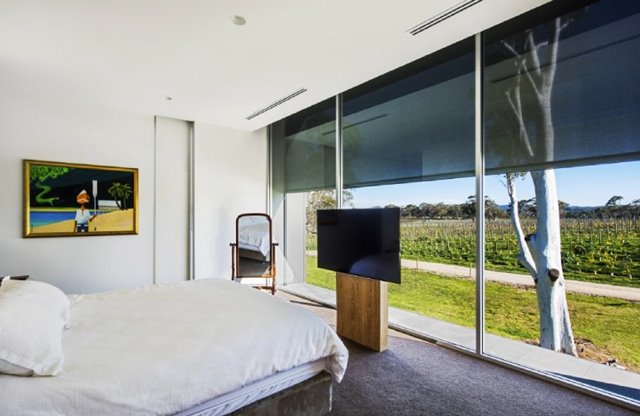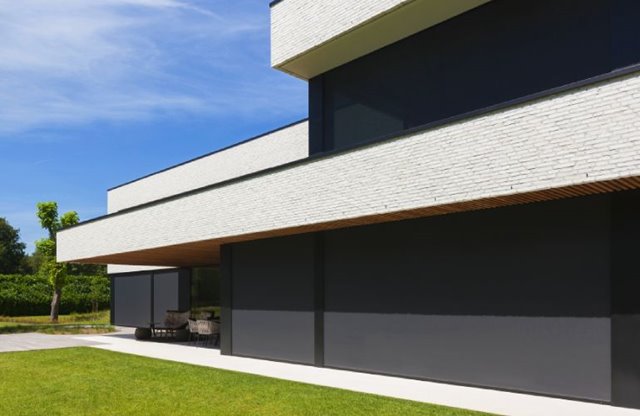How to avoid overheating: frequently asked questions
What’s the advantage to keeping the sun outdoors with external solar shading, instead of using indoor sun protection (curtains)?
Without sun protection, direct sunlight comes in through the glass (shortwave radiation), causing the indoor spaces to heat up (floor, furniture, walls). This results in the heated interior releasing the heat via longwave radiation that's reflected by the glass, which in turn actually traps the heat in the house, a significantly problematic issue for well-insulated homes. Ultimately, the point is to block the sun’s rays before they ever hit the windows.
Is sun protection by itself enough to keep my home completely cool?
Installing sun protection already goes a long way, however, combining this with natural, powerful (night) ventilation is strongly recommended. Natural, powerful ventilation uses large, natural air currents to cool down the house at no extra cost. It’s used when the outside air is cooler than the inside air. This is usually the case at night, which is why this principle is also known as 'night cooling'. To apply this principle to a home, one or more louvres should be installed on the outside of the window.

How durable and weatherproof is sun protection fabric?
There’s no need to worry about lowering your sun protection fabric even under poor weather conditions (heavy rain, wind, etc.). That’s because it can withstand wind speeds of up to 130 km/h when assisted by the guiding system. Glass fibre fabric also scores best in terms of tension and rigidity and is also very resistant to moisture and heat. The fabric is also UV-resistant, colourfast and can be used for years on end based solely on regular maintenance with a mild detergent.
Will I still get to enjoy daylight with external solar shading, and will I still be able to see outside?
Unlike roller shutters, sun protection fabric doesn’t restrict your enjoyment of sunlight or keep you from seeing outside. Lowering roller shutters prevents you from enjoying the views of your garden. In contrast, sun protection fabric doesn’t detract from that pleasure, but does block the sun's bright rays. One thing this is handy for, for instance, is keeping an eye on the kids when they're playing outside. Permanent outdoor sun protection is also available in addition to external solar shading. This includes, for example, aluminium blades (both fixed and movable) on a window, an aluminium awning above a window or sliding panels that can slide in front of the window. These also allow you to continue benefiting from the sunlight, just without having the sun heat up your home where it's not needed.

Does external solar shading come with automatic control?
Definitely! It’s also strongly recommended. External solar shading works best when it's controlled automatically (e.g., via a lux meter that automatically lowers the sun protection based on a specific amount of sun). This provides you with a true ‘smart home’, one that maintains itself, whether you’re home or not. External solar shading can naturally also be controlled via existing home automation systems.
Does sun protection affect my home's energy consumption?
Absolutely! By preventing your home from heating up too quickly and too much, you also limit the energy costs related to cooling it back down by using expensive air conditioning or cooling systems. On the other hand, when it gets colder again, you can take full advantage of the solar gains and reduce the costs of heating your home.
What kind of trouble am I in if my house ‘overheats’?
When you can’t get the indoor climate to cool down anymore, it mostly leads to discomfort. It’s hard to sleep, you can’t cool down at all, and everything tires you out. The better the home is insulated and airtight, the harder it will be to dispel that heat. Research shows that the number of hot days per year is on the rise, but that the number of days requiring heating is on the decline. That means that sun protection has become more important when it comes to preventing overheating and reducing heating needs.
